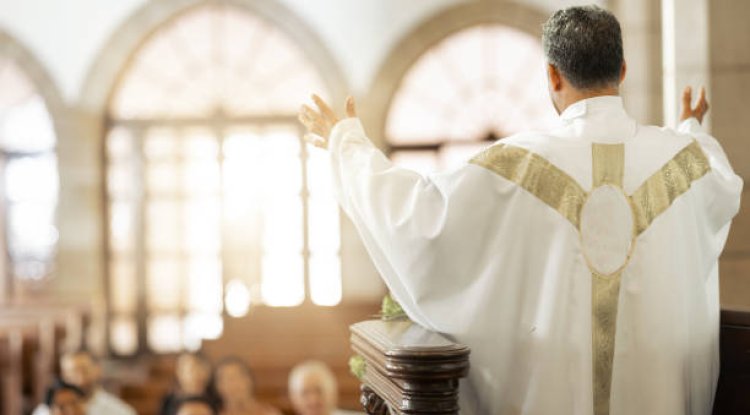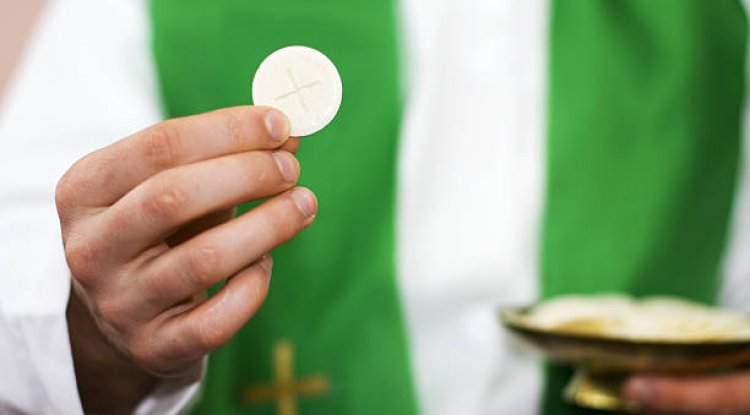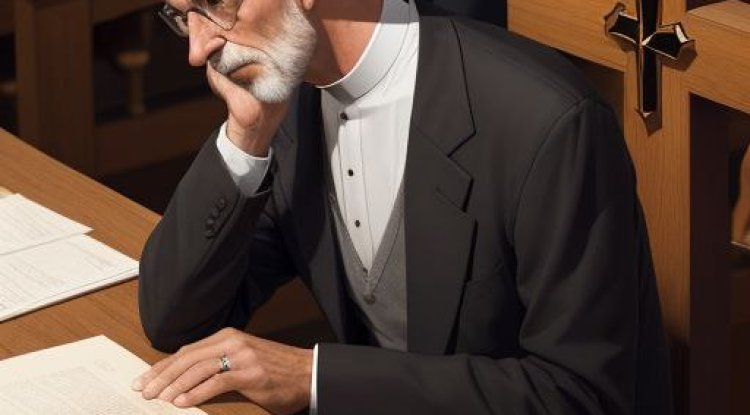NO FAMILY WITHOUT CHALLENGES
HOMILY FOR THE HOLY FAMILY OF JESUS, MARY AND JOSEPH, YEAR B. Readings: Genesis 15:1-6; 21:1-3; Psalm 105; Hebrew 11:8.11-12.17-19 and Luke 2:22-40.

Traditionally, on the first Sunday in the Octave of Christmas, which apparently is the last Sunday of the calendar year, we celebrate the Holy family of Nazareth, the family of Jesus, Mary and Joseph. God is born into a human family and so, He calls us as families through the readings to re-examine the nature and structure of our families. The Liturgy of today calls us to reflect on the scriptural background of family, family as the basis for a civil society, as well as what it entails to have a peaceful and loving family.
Obviously, the structure of family life has been challenged greatly over the years. The shaky foundation of the family goes down to the concept of marriage as some opine for marriage between two, even if they are of the same sex. Crazy things are happening in recent times with so much confusion as to what should constitute a family as some now desire to have their cats and dogs be included as family members. In today’s liturgy, we recall that the family remains the fundamental arch on which the structure of the human society is raised; it is the nuclear unit of the society on which the whole structure of the society rests, when we destroy or weaken the family structure, the society is affected. As the basis for civil society, the family has the foundation of human relationship where virtues are nurtured, such as love, peace, kindness, gentleness and compassion, among others, not vices.
As the liturgy of today reminds us of the meaning and structure of family, it brings to our minds the divine family of God, made up of the Father, the Son and the Holy Spirit. When the Son took flesh at Christmas, He was born into the family of man, making the family of Jesus, Mary and Joseph. This ideal family reflects the divine family for everyone to take as a model. It wasn’t the case that they had no challenges or difficulties. They had theirs! The very work of Joseph as a carpenter depicts him as a low-income earner. Even the place of Christ’s birth (the manger) portrays poverty. Invariably they had economic challenges. They also had security challenges, Joseph and Mary had to run to Egypt for the safety of the Child Jesus, whose life was threatened by Herod. They were refugees at some point, practically like us in everything but not sin.
In the first reading, we see the family of Abram, Sarah and Isaac. The promise made by God to Abram was fulfilled in Isaac in their old age. When Abram thought all hope was lost, he said, “You have given me no offspring; and a slave born in my house will be my heir” (Gen 15:3). At this point, God proved to him that He is God saying, “This man shall not be your heir; your own son shall be your heir… The Lord visited Sarah as he had said, and the Lord did to Sarah as he had promised” (vv. 4; 21:1). More blessings were given to this faithful servant Abram that his descendants will be like the stars of heaven, innumerous. Interestingly, Abram trusted in God and remained faithful, despite the challenge of childlessness. He never gave up on God and God did not give up on him. Similarly, the psalmist tells us, “The Lord remembers His covenant forever” (Ps. 128:1).
In the second reading, the letter to the Hebrews emphasized the faith of Abraham that never wavered, “By faith, Abraham obeyed when he was called to go out to a place which he was to receive an inheritance; and he went out, not knowing where he was to go. By faith Sarah received power to conceive, even when she was past the age, since she considered him faithful who had promised… By faith, when Abraham was tested, offered up Isaac” (Heb. 11:8; 17). In his faith, we see his obedience and trust in the Lord. These necessary virtues keep the Christian family outstanding in the civil society that may demand artificial fertilization, vice-a-vice surrogacy, which is contrary to the unity of marriage and the dignity of procreation of the human person in accordance with the Congregation for the Doctrine of Faith.
The Gospel of Luke chapter 2:22-40 presents to us the fourth of the five joyful mystery, the presentation of Jesus in the temple with two important figures: Simeon and Anna. Luke presents to us some information of Jesus’ childhood. He gave a theological information of this that: Jesus Christ was born a Jew among Jews; He came under the Law of Moses and although, fulfilling the Law in honouring his father and mother (Lk 2:51). However, His ultimate obedience was to His heavenly Father, when he said to His parents, “Why were you searching for me? Did you not know that I must be in my Father’s house? (Lk 2:49).
Furthermore, the presentation is motivated by specific requirements of the Law of Moses. According to Leviticus 12 which speaks of purification of woman after childbirth; that after childbirth, a woman is impure and need sacrifices in the temple for purification. These ceremonies were necessary as a reminder that we are all born in sin (Psalm 51:5). Christ and Mary could have been excused because they were sinless. Yet, we see in Christ even as a baby, identifying with sinners, as He also later did at baptism and on the cross.
Since, the Law tells us that the first-born male belongs to the Lord, “Consecrate to me all the first born; whatever is the first to open the womb among the Israelites, of human beings and animals, is mine” (Ex. 13:2). In view of this, Luke alludes to the story of Samuel, when Hannah had no child, she prayed to God for a son and vowed to dedicate the son to the Lord (1Sam. 1:11). Mary in Luke’s Gospel takes the role of Hannah while Jesus takes the role of Samuel. Hence, Luke subtly utters the language of Exodus from the command to consecrate the firstborn to a declaration about Christ the holy one dedicated to the heavenly Father.
Like the faith and obedience of Abraham, the holy family of Jesus, Mary and Joseph demonstrates Christ’s humility and obedience with respect to the fourth commandment. He who is God expresses humility and obedience to His parents Mary and Joseph. It was not all rosy for the holy family; they had their joys and sorrows. Their poverty cannot be overemphasized and the words of Simeon to Mary, that a sword will pierce through your soul expresses the challenges ahead of her and the family. However, we are challenged to emulate the holy family in all virtues and to make our families like theirs. May God bless our families through Christ our Lord. Amen!
Happy Sunday!
Fr. Ken Dogbo, OSJ
What's Your Reaction?



















